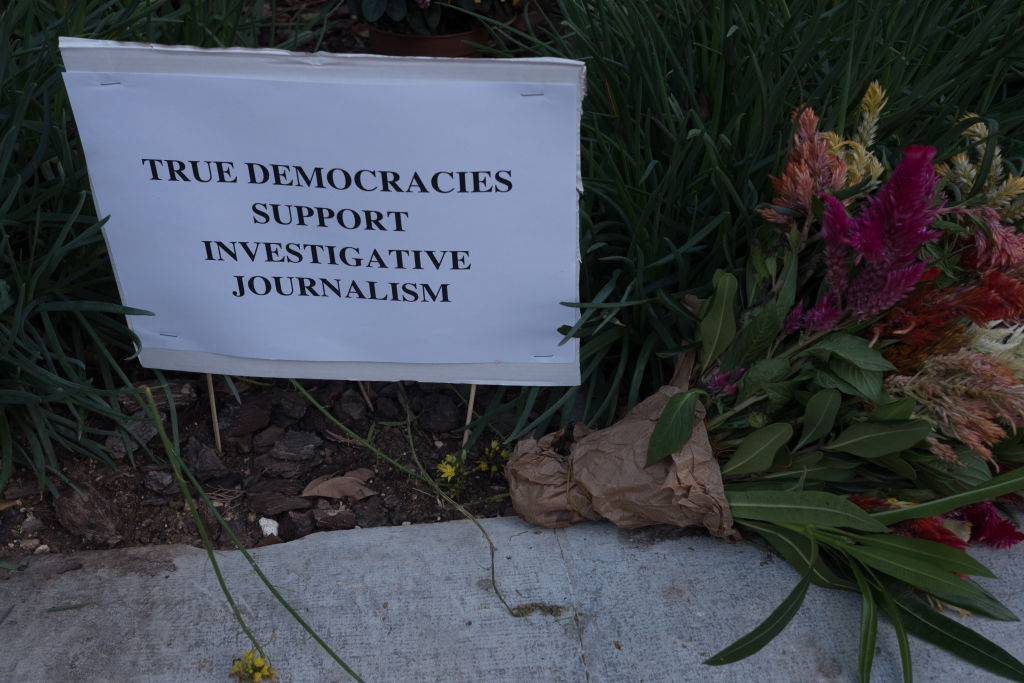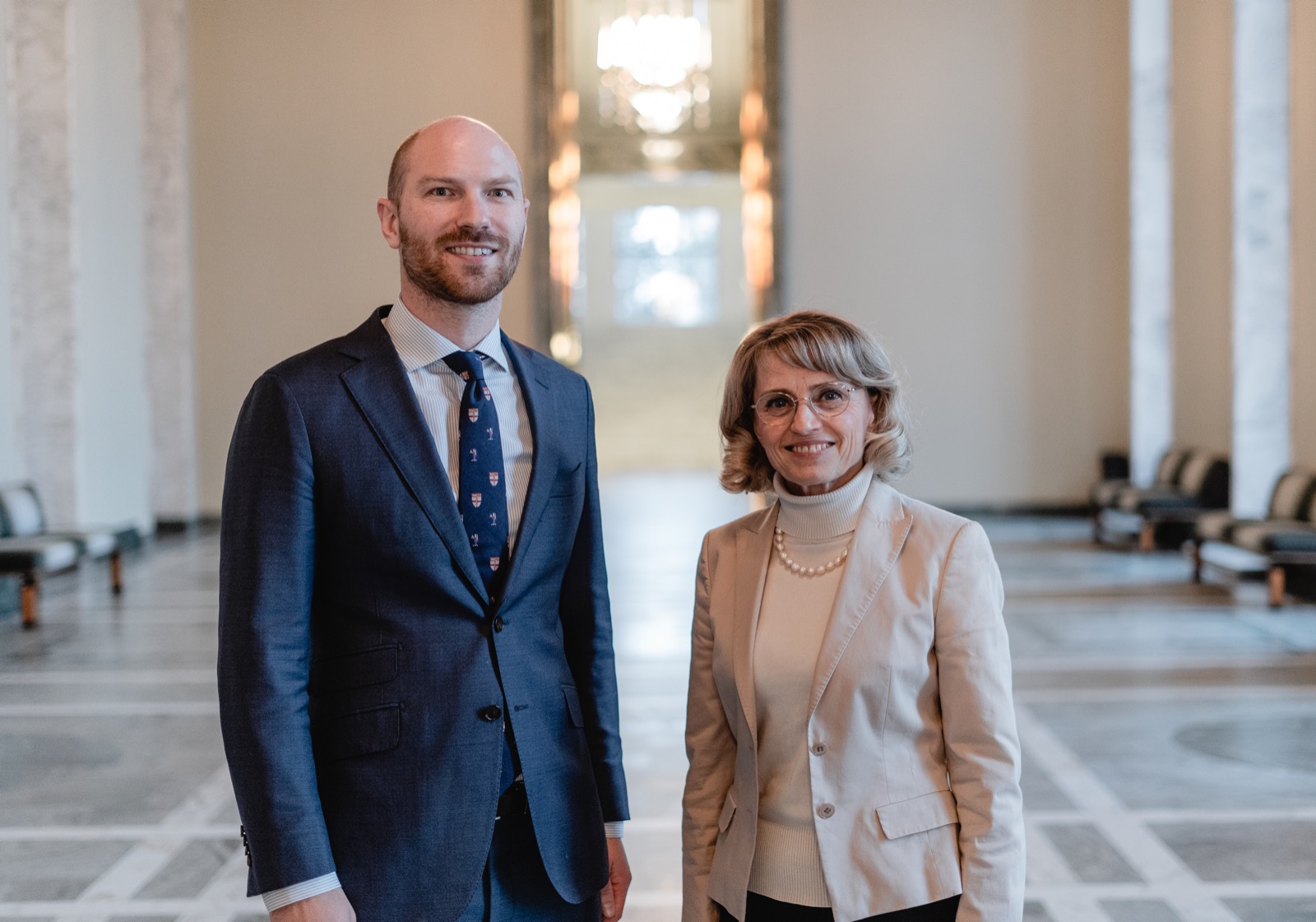The Saxony state branch of Alternative for Germany (AfD) has landed itself in hot water after a political campaign criticising gender-inclusive language was accused of using Nazi-era symbology.
An image was used depicting a downwards-facing triangle in the colours of the LGBTI+ rainbow flag. In Nazi concentration camps men imprisoned for homosexuality had to wear an inverted pink triangle on their prison clothing.
Appearing in a Tweet that was later taken down, the image was described as “crossing the line” and “disgusting” by Jens-Christian Wagner, the director of the Buchenwald Memorial. Buchenwald was the largest Nazi concentration camp within Germany’s 1937 borders.
Zweifache Grenzüberschreitung der #AfD Sachsen: Verstoß gegen die #Wissenschaftsfreiheit (Art. 5 Abs. 3 GG) und ein Symbol, das an den rosa Winkel der als homosexuell ins #KZ Deportierten angelehnt ist. Ekelhaft, grundgesetzwidrig, homophob und geschichtsrevisionistisch. pic.twitter.com/HEAPogE5QN
— Jens-Christian Wagner (@JensChristianW1) July 14, 2023
Wagner also described the image as a “violation of academic freedom” and as “unconstitutional, homophobic and historically revisionist.“
While many agreed with Wagner, others on Twitter noted — including Junge Alernative Sachsen, the Saxony branch of the AfD’s youth organisation — how the same symbology is widely used among the LGBTI+ community:
Hallo Maurice, wenn du wirklich eine Anzeige wegen Volksverhetzung stellen willst, weil die AfD das Symbol benutzt hat, was ihr euch selbst für „Safe Spaces“ an Universitäten ausgedacht habt, bitte die anderen hier auch verklagen, danke. ? https://t.co/FdUhvcKjmE pic.twitter.com/IsFbuExWoO
— Junge Alternative Sachsen (@JA_Sachsen) July 15, 2023
“They are very smart, they know what they are doing,” Gabriele Freitag, executive director of Berlin-based German Association for East European Studies (Deutsche Gesellschaft für Osteuropakunde, DGO), tells Brussels Signal. “They are constantly using Nazi-related language but are smart enough [to do it in a way] not to get sanctioned.”
She says the AfD’s Saxony branch is “one of the hardliners”. The reasons behind Saxony being such a hotbed for the party are “difficult and delicate” to explain, says Freitag. It’s partly related to geography — being in the east of Germany — and to the process of reunification after the Berlin Wall came down.
The AfD’s rise, and the fact it is also gaining popularity in parts of the country outside of former East Germany, is a “really frightening development” and should be “a concern for Brussels”, Freitag says.
The slogan accompanying AfD Saxony’s controversial image read “Sprach-Verhunzung stoppen” (Stop language adulteration) and “Genderverbot auch an Universitäten!” (Gender ban also at universities!).
Saxony has already introduced a ban on “gender-inclusive/neutral” language in its schools.
Language is serving as an increasing battlefield in the culture wars, especially in countries like Germany and France due to the fact that almost every noun has a male or female gender or is neutral.
While some embrace the contemporary effort to make the German language “fairer”, others “complain that gender-inclusive language is producing a host of ridiculous language constructs”.
AfD is appealing to the latter constituency. Its tactics appear effective as it continues to perform strongly in the polls and has started to win local elections, much to the concern of some EU officials.
Brussels Signal spoke to the office of Gunnar Beck, an AfD politician with the Identity and Democracy group, and was told the MEP could not comment on AfD Saxony as he represents the party in North Rhine-Westphalia.
A member of his staff noted that Beck is busy preparing for the AfD party congress in two weeks’ time when it will select candidates for the 2024 European Elections.
Currently the AfD has nine MEPs in the European Parliament (11 were elected in 2019, but two have subsequently left the party) and will “absolutely” increase that number, the source said, noting how a gain of one percentage point in national polls usually translates to one MEP, and currently AfD is polling at 20 per cent.
“We are up in the polls and there is no reason why it will go down again,” the source said.
The rise of AfD “can be partially explained by the significant political and economic upheaval the country is experiencing as a result of the war in Ukraine and Germany’s response to it,” Suzanne Loftus writes for Responsible Statecraft.
Small-to-medium sized businesses in Germany are struggling. The country’s star car maker Volkswagen is in dire straits.
“As the country with the largest economy in the European Union and one of Europe’s major leaders upon which much of the continent’s economic support depends, the fate of Germany should concern us all,” Loftus says.





